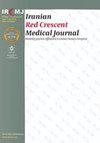Construction of a Quality Evaluation system for Emergency Pre-examination and Triage under the Normalization of the COVID-19 Epidemic based on the SERVQUAL Model
IF 0.2
4区 医学
Q3 MEDICINE, GENERAL & INTERNAL
引用次数: 0
Abstract
Background: The effect of emergency epidemic prevention and control and the quality of emergency pre-testing and triage under the normalization of COVID-19 epidemics was evaluated by quality evaluation system based on the SERVQUAL model. Objectives: This study aimed to develop a quality evaluation system for emergency pre-test and triage under a normal COVID-19 epidemic, based on the SERVQUAL model. Methods: Based on the SERVQUAL model, a quality evaluation system of emergency pre-examination and triage under the normalization of the COVID-19 epidemic was developed. Two rounds of expert consultation were conducted by the Delphi method, involving 15 experts. Results: The recovery rates for the two rounds of expert consultation were 100 %, the expert authority coefficient was 0.954, and the Kendall coordination coefficients were 0.273 and 0.182. The coefficients of variation of the three-level indicators of the two rounds of expert consultation were 0.003-0.275 and 0.052-0.125, respectively. An evaluation system including 5 first-level indicators, 14 second-level indicators, and 42 third-level indicators of 5 dimensions (tangibility, reliability, responsiveness, assurance, and empathy) of the SERVQUAL model was established. Conclusion: Based on the SERVQUAL model, a quality evaluation system for emergency pre-examination and triage under the normalization of the COVID-19 epidemic situation was completed. It reflected the medical services, triage, and epidemic prevention and control required to provide the requisite quality of emergency pre-examination and triage under the normalization of the COVID-19 epidemic situation. It provided a reference for the quality supervision of emergency pre-examination and triage under the normalization of the COVID-19 epidemic situation.基于SERVQUAL模型的疫情常态化下应急预检分诊质量评价体系构建
背景:采用基于SERVQUAL模型的质量评价体系,对新冠肺炎疫情常态化背景下的应急疫情防控效果和应急预检分诊质量进行评价。目的:建立基于SERVQUAL模型的新型冠状病毒肺炎(COVID-19)正常疫情下应急预检测与分诊质量评价体系。方法:基于SERVQUAL模型,构建新冠肺炎疫情常态化下应急预检分诊质量评价体系。采用德尔菲法进行了两轮专家咨询,共有15名专家参与。结果:两轮专家咨询回收率均为100%,专家权威系数为0.954,肯德尔协调系数分别为0.273和0.182。两轮专家咨询的三级指标变异系数分别为0.003 ~ 0.275和0.052 ~ 0.125。建立SERVQUAL模型的5个一级指标、14个二级指标和42个三级指标(有形性、可靠性、响应性、保证性和共情性)的评价体系。结论:基于SERVQUAL模型,构建了新冠肺炎疫情常态化下应急预检分诊质量评价体系。反映了疫情常态化下,提供应急预检和分诊所需质量的医疗服务、分诊和疫情防控要求。为新冠肺炎疫情常态化下的应急预检分诊质量监督提供参考。
本文章由计算机程序翻译,如有差异,请以英文原文为准。
求助全文
约1分钟内获得全文
求助全文
来源期刊

Iranian Red Crescent Medical Journal
MEDICINE, GENERAL & INTERNAL-
CiteScore
1.16
自引率
0.00%
发文量
0
期刊介绍:
The IRANIAN RED CRESCENT MEDICAL JOURNAL is an international, English language, peer-reviewed journal dealing with general Medicine and Surgery, Disaster Medicine and Health Policy. It is an official Journal of the Iranian Hospital Dubai and is published monthly. The Iranian Red Crescent Medical Journal aims at publishing the high quality materials, both clinical and scientific, on all aspects of Medicine and Surgery
 求助内容:
求助内容: 应助结果提醒方式:
应助结果提醒方式:


